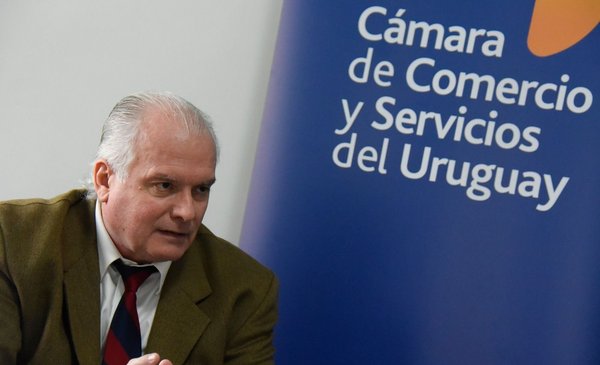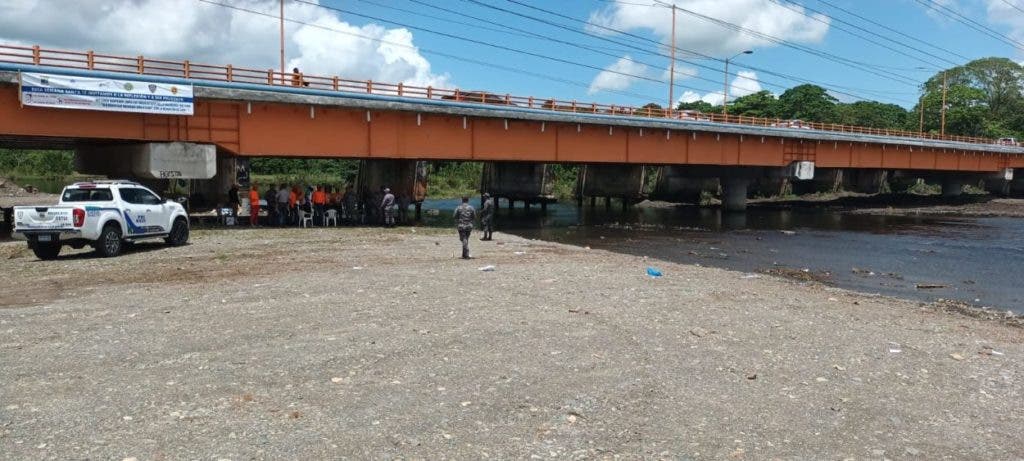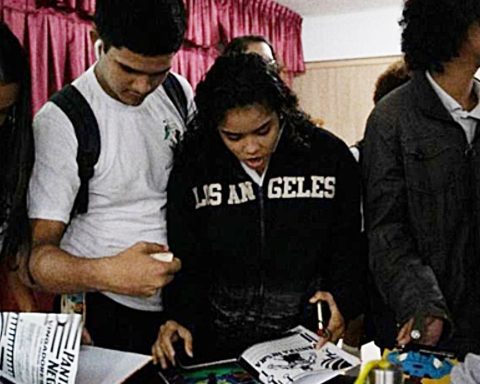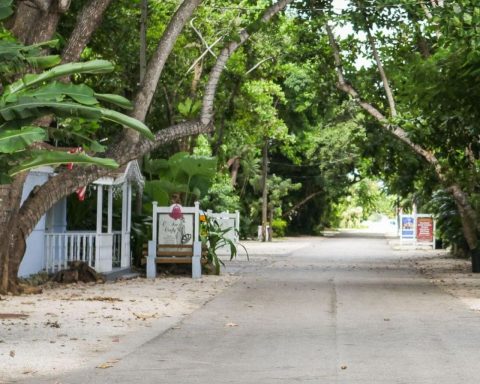After nine months since it was his turn to take over as head of the Chamber of Commerce and Services of Uruguay (Ccsuy) – with pandemic and referendum through -, Daniel Sapelli aims to be able to solve and move forward with issues that were pending.
The president of the Ccsuy told The Observer that, as stated by assuming, met with many businessmen at different levels and conveyed their concerns to the government but that it is “very difficult” to reach solutions or that many times these are “unsatisfactory”.
In turn, he targeted the “bureaucratic obstacles” what “complicate the trader” and argued that it is necessary to “remove unnecessary regulations” managing to make a “big bureaucratic sweep”.
In an interview with El Observador, Sapelli took stock of his first nine months at the head of the Ccsuy and between other things, He expressed concern about the situation of border businesses that are threatened by the lower costs of neighboring countries.
What evaluation do you make of this almost first year at the head of the Ccsuy?
We are just completing the first nine months and although it seems like a short time, many things have happened. In any case, we are aware that much more remains to be done. Now that the pandemic has eased and the issue of the referendum is over, we hope to be able to move forward on many issues that we have pending. Particularly in trying to eliminate all the obstacles, regulations and additional costs that exist both in commerce and in services.
The data shows that although there was a year-on-year growth of 5.4% in the last quarter of 2021, being the second consecutive period with an increase, in the balance of 2021 the sector closed with a drop of 1.6% compared to 2020 How do you evaluate this first quarter of the year 2022? What numbers can you handle so far?
Yes that’s how it is. On the other hand, the worst moments of the pandemic were experienced in the first semester and this led to little movement of people and therefore less consumption. Then, the vaccines began to take effect and the general health situation began to improve, which caused people to go out again and consumption to improve. As much as the last few months were good, on average for the year there was a drop of 1.6%. In any case, comparing with 2020 is not a good reference either, it is better to do it with 2019, which is a pre-pandemic year, although it was not a big deal in sales either, we had not grown compared to 2018 and a drop of 6.5% with compared to 2017. Compared to that year there was a slight growth in recent months in real terms, the same thing we understand happened in the first quarter of 2022, although we do not have official numbers yet. It is also necessary to understand that all items behave very differently, some grow up to two digits and others have been in the red for more than two years, we must be very careful with this point.
Camilo dos Santos
Uruguay has not been immune to logistical complications and the increase in freight rates for imports. What is that situation today?
Well this is a very complex topic and one that changes continuously. From July 2020 to December 2021, freight rates multiplied by 15, that is, we went from paying US$1,000 for a 40-foot container to US$15,000. Then, at the beginning of 2022, freight rates began to drop, today we are at approximately US$7,000, but this drop was stopped by the rise in oil, the war, etc. and we fear that at any moment it will rise again. In addition to the fact that there are significant outbreaks of covid-19 in several cities in China, which has led to the closure of many factories, ports, etc. This leads to delays, increases in prices and complications when buying and making products, it is difficult to get the raw material or the workers necessary for production. After all these difficulties, it is necessary to obtain the empty containers to be able to load the products, then place available on the ships and that these arrive in a timely manner to the Rio de la Plata. Today managing to coordinate all this logistics is not easy.
You said last year right after assuming: “We are having meetings with the different unions to assist them and see the problems they have. We are going to try to help them and get the government to enable them as much as possible. For example, in the event that it is necessary, that they be given an incentive in any way possible, such as not charging them something or lowering some tax.” How do you assess government support? Do you think that was enough?
Obviously, being on the merchant’s side is never enough, especially in these times where work was done at a loss or not worked directly, as happened in many areas such as events, travel agencies, hotels and other services. Luckily, on the part of the government, many of these situations were considered and there were different benefits for these sectors, but in any case they were not enough, many closed or had to shrink a lot. Another important issue that we still have not found a solution to is the issue of border businesses where they must compete with significantly lower prices from neighboring countries. We know that very difficult months are ahead, particularly now that the borders are open and without health requirements. As much as there were some tax cuts and fixed costs of State service rates, these are not enough. The price difference is too big and we have to think of other alternatives. Of course, one of the most important points is border control at the customs level to prevent the passage of these products, but we understand that other more important solutions must be sought to defend merchants formally established in the border departments.
What have the employers told you?
We were able to listen to many entrepreneurs, both at an individual level, as well as at a sectoral and regional level. We try to channel all proposals to the relevant state agencies, but it is not easy and although we then follow up on the issues raised, the realization of solutions is very difficult and sometimes very unsatisfactory. Many times the request is something minor, it is a procedure or a certificate that does not affect the State financially, but it is a bureaucratic hurdle that complicates the merchant and managing it means time and unnecessary costs. The issue is that these changes that we request later do not materialize for one reason or another, or because they mean an entire internal bureaucracy to be able to get them out. There should be a quick way to eliminate all these unnecessary regulations, achieving a great bureaucratic sweep and small controls and procedures, the government would save personnel costs to control these issues and would surely save more than it collects. In addition, I believe that it would gain much more from the efficiency side of the companies, the lower operating costs associated with being able to produce in our country, either to be able to export or to be able to compete with similar products or services abroad.
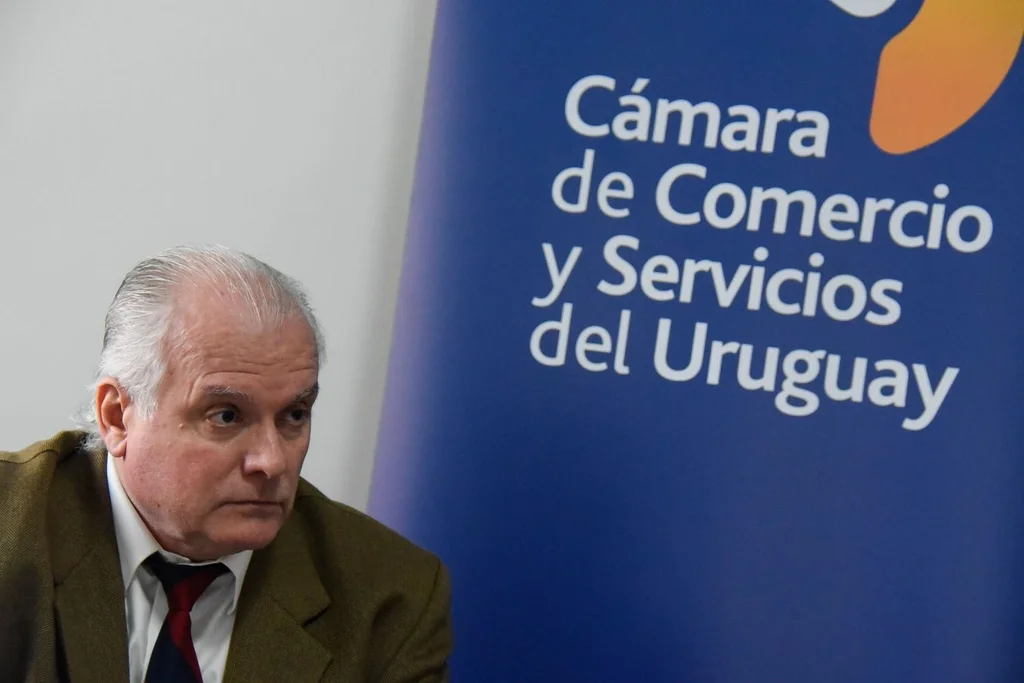
Camilo dos Santos
On the topic of job recovery, where is the sector? It was one of the hardest hit by the pandemic and last year Ana Laura Fernández, economic advisor to the Chamber, explained that the service sector is going to be one of the sectors that will take the longest, first to manage to reincorporate workers and second, to incorporate new ones.
There has been a recovery in employment, obviously our sector is one of the hardest hit and the one that will cost the most to recover, but we are optimistic based on how sales picked up at the end of the year and we hope that this year will be much better and we will be able to get closer to figures similar to the pre-pandemic. Soon, when we have the data from the chamber’s survey for the first quarter, we hope to be able to confirm the recovery of the sector and have more specific numbers on it.
What experience has the sector had in hiring foreign personnel, for example in the case of Venezuelans? What difference do you find regarding the Uruguayan workforce?
The experience is good, they are people who come with a great desire to work, and in general they are very attentive and friendly. It is rather a difference in style in the way of communicating, the Uruguayan is more reserved, more shy but very kind and polite, historically tourism has always highlighted these virtues over the attention of Uruguayans.
The Minister of Labor and Social Security, Pablo Mieres, acknowledges that salary recovery could be delayed given the inflationary push. And the PIT-CNT is talking about reviewing agreements, for example, those that expire in June 2023 and only have the corrective for inflation at the end. Do you think it is possible to evaluate advancing the payment of corrections or modifying percentage increases taking into account the current situation?
I repeat that the items are very different, it would have to be analyzed item by item. What I think would be very good is that all these external elements that have resulted in occasional increases in some products that affect inflation, stabilize as soon as possible and prices return to normal. The world situation due to the war has generated a volatility that is difficult to understand at times, only that uncertainty leads prices to rise in general when sometimes there is no logical reason behind it.
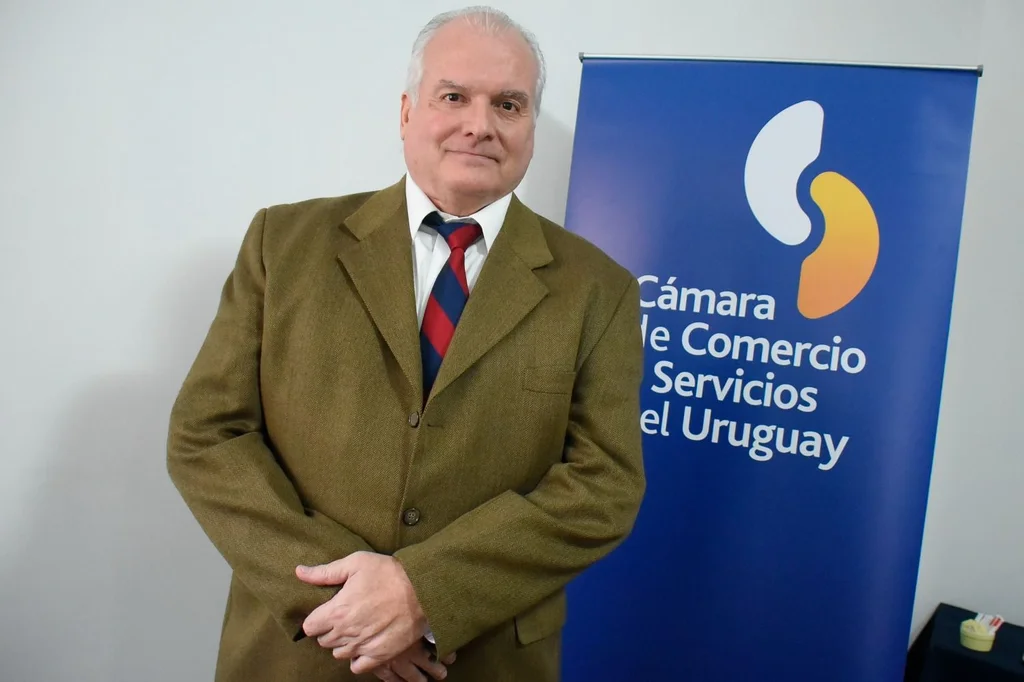
Camilo dos Santos
Do you think that this is an issue that the government should consider given that the scenario is very different from what was thought when the negotiation guidelines were drawn up?
You should consider it if there are items where there is a significant uptick, but I think that did not happen in most items. In commerce and services we are talking about a 1.6% drop in 2021 compared to 2020. It would be necessary to analyze which items fared better than expected, and also consider those that fared worse to see if everything can be adjusted accordingly. chord shape.
Do you expect the government to move forward this year with the changes in the Collective Bargaining Law and with the observations of the ILO?
The government is making progress on certain changes to the law, and we are optimistic that we will be able to resolve as soon as possible this complaint that we have raised for thirteen years at the ILO.
The CEO of the Ta-Ta supermarket chain, Christopher Jones, was critical of how difficult it is to import and register products in Uruguay. Do you share that criticism? What specific claims does the Chamber have in this regard?
I agree, it is part of what I said before regarding the procedures and certificates. We have raised many specific issues in the different ministries and State agencies, they are many and very specific. For information purposes, I would like to tell you that we have a permanent work table with the Ministry of Economy and Finance (MEF) and the Technological Laboratory of Uruguay (LATU) to deal with these foreign trade issues, both for exports and imports. That is why we highlight the willingness of the government to work in coordination with the private sector and advance on these issues that are so important for the competitiveness of our companies, but I emphasize again that we should achieve more changes and more quickly.
